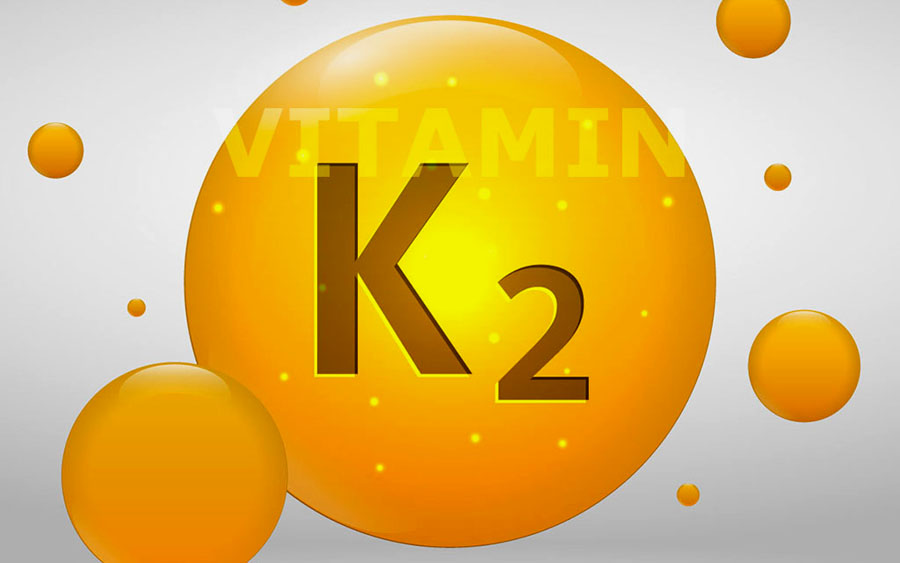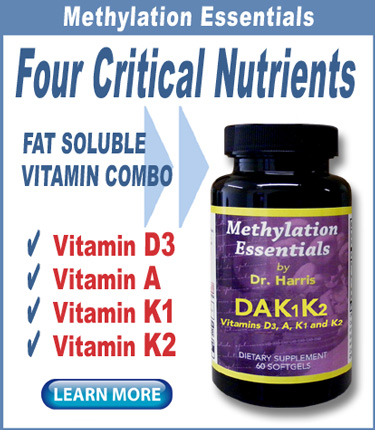Vitamin K2 status may have a stronger association with COVID-19 related inflammation than Vitamin D deficiency, according to a new study from the Netherlands.
The main take-away from the study, say researchers, is that Vitamin D supplementation should be complemented with Vitamin K2 supplementation.
The study was conducted by researchers at Canisius-Wilhelmina Hospital on 135 hospitalized patients with COVID-19, and was published in Frontiers in Nutrition in January 2022.
Severe symptoms during COVID-19 infection arises at least in part from an excessive inflammatory response by cytokines. This is known as a “cytokine storm.” A key group of cytokines in this “storm” are interleukins, and researchers noted that both vitamins D and K are modulators of this storm—particularly in regards to interleukin.
Study details
To conduct the study the hospitalized test subjects were measured for circulating 25(OH)D and dp-ucMGP, the standard measurement of Vitamin K status. These concentrations were then evaluated in relation to inflammatory response, elastic fiber degradation, and clinical outcomes.
Researchers found that interleukin levels were significantly higher in patients with poor outcomes, and were affected by levels of Vitamin K. Vitamin D levels were only borderline statistically significant when it came to correlations with interleukin, the authors noted.
In addition, a significant association was also found between interleukin and elastic fiber degradation—and Vitamin K status correlated with this degradation. Notably, Vitamin D did not.
“Interleukin is a pro-inflammatory cytokine that plays a key role in the development of severe COVID-19 and is regarded as an important therapeutic target,” senior author Jona Walk, MD, PhD, said. “We demonstrated a highly significant correlation between elevated interleukin levels and poor Vitamin K status, whereas the association with Vitamin D was only borderline significant.”
Study limitations
The study is limited in that it is only observational and was conducted in collaboration with a Vitamin K2 manufacturer, Kappa Bioscience. The researchers acknowledged that a follow-up intervention trail may provide insight as to whether Vitamin K administration, either in combination with Vitamin D or alone, might improve clinical outcomes of COVID-19.
Notwithstanding the limitations, the researchers summarized that their study, in conjunction with earlier studies, highlighted the risk of failing to include Vitamin K supplementation in conjunction with any Vitamin D supplementation:
“There are many Vitamin D proponents from scientists and medical doctors to influencers and eminent politicians, advocating the distribution of Vitamin D among the general population to reduce the burden of COVID-19” said pulmonologist and researcher Rob Janssen, MD, PhD, the scientist who is credited with discovering the link between COVID-19 infections and Vitamin K deficiencies.
“However,” Janssen continued, “administration of Vitamin D without K may not be without risk, as Vitamin D increases the demand for K. This may cause further Vitamin K depletion, which could be harmful in patients with moderate or severe COVID-19 who are without exception already Vitamin K deficient. Based on our current data and previous work, I strongly suggest that Vitamin K2 should be added to D supplementation, particularly against the background of the ongoing pandemic.”
Optimal Health Systems offers several formulas providing Vitamin K2, and one product providing a potent K1 and K2 combination. Please follow the links below for more info.
Optimal Longevi-D
(with K2, CoQ10 and Vitamin D)
Optimal 2 Vitamin/Mineral
(with K2 and all other essential vitamins and minerals)
Essential DAK1K2
(with both K1 and K2, and other fat-soluble vitamins)
– – –
Sources: Frontiers in Nutrition, Wikipedia, Nutraceuticals World.


